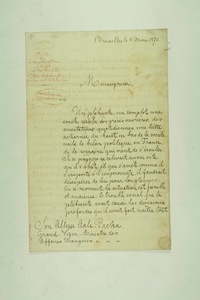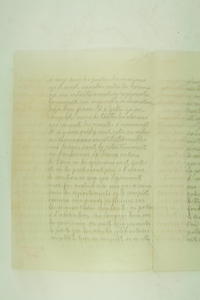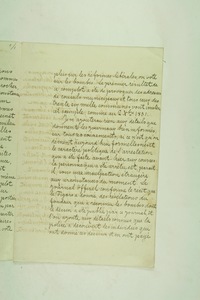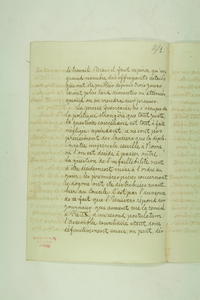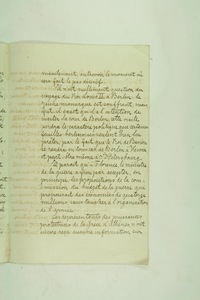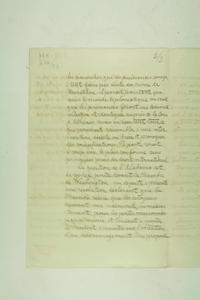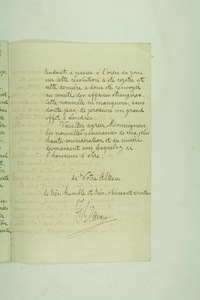Ottoman Diplomats
Letters from the Imperial Legation in Brussels (1849–1914)
Synopsis
Le complot de Paris. Le Concile. Le Roi Louis II. L'Italie. La Grèce. La question de l'Alabama
Glavany worries about the political situation in France. The plebiscite caused divisions and led to social unrest. The situation worsened due to a conspiracy rumour, which could influence people outside of Paris who had not made up their minds yet. Voting about liberal reforms would turn into voting about bombs. The French newspapers, however, denied the political character of an incident that took place two days earlier, concerning the publication of drawings of bombs. Glavany also reports about the Vatican Council and notes that it would decide on papal infallibility. About the Bavarian King Louis II, Glavany remarks that if it would be the King’s intention to visit Berlin, his stay would lose its political meaning, as the King would also visit Vienna and maybe even Saint Petersburg. In Florence, the Minister of War agreed on the proposition of the Committee on the War Budget to economize, without changing the organization of the army. About Greece, Glavany reports that the representatives of the protective powers of Greece in Athens had not received any information about the steps these powers wished to take in reaction to the crime of Marathon. The diplomatic world believed that these powers would take a collective and identical demarche on the court in Athens, without making it look like a direct intervention in Greece. This way, the diplomatic action would be in conformity with the principles of international right. In the Chamber of Washington, the Alabama Affair was discussed. Glavany mentions the resolution that was proposed by one of the deputies, stressing direct indemnity. This would be dealt with by the Committee on Foreign Affairs.
Facsimiles
How to cite
If you use this website for your own research, we kindly ask you to mention the following reference in your publications:
Consulted online at Ottoman Diplomats: Letters From the Imperial Legation in Brussels (1849–1914) (2014 Edition), Centre for Political History (PoHis), University of Antwerp, <http://dighum.uantwerpen.be/ottomandiplomats/>.
